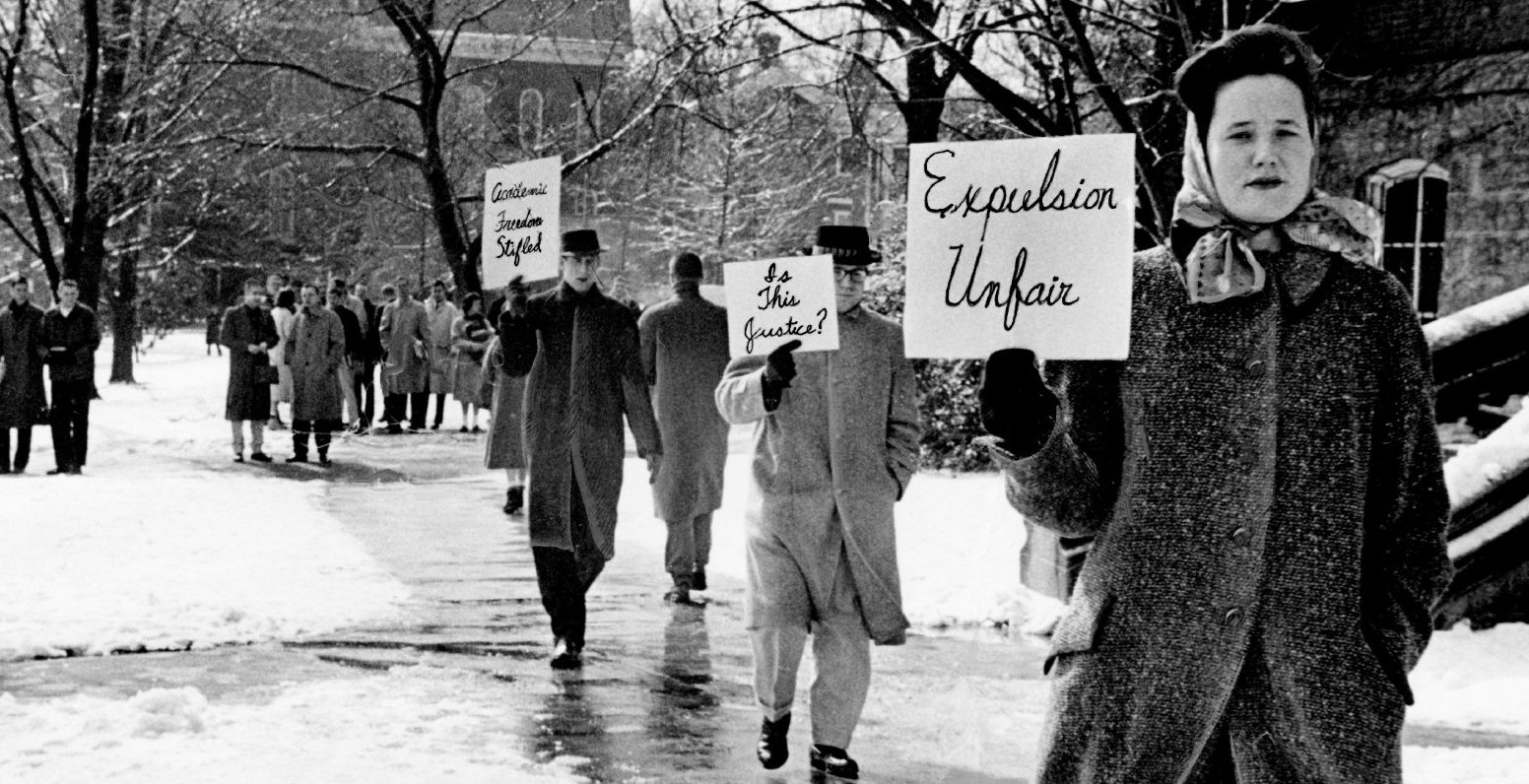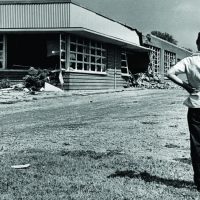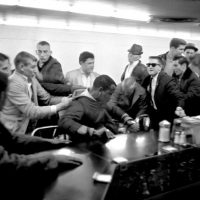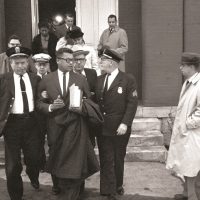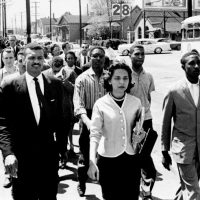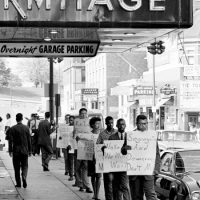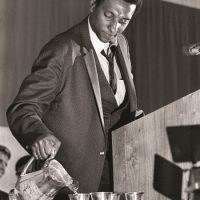We Shall Overcome: Civil Rights and the Nashville Press, 1957-1968, a photography exhibition on loan to Vanderbilt Divinity School from the Frist Art Museum, illuminates key moments in Nashville’s struggle for racial equality, including the leadership of the Rev. James Lawson during nonviolent protests in the late 1950s and ’60s.
The black-and-white photographs, which will be displayed throughout the fall and spring 2023 semesters, were curated from the archives of The Tennessean and Nashville Banner. The photos were taken between 1957, the year that desegregation began in Nashville public schools, and 1968, when the Rev. Martin Luther King Jr. was assassinated in Memphis. Some images have been previously published, but many have not.
“The Divinity School is honored to host this exhibition, which conveys the major role of Nashville in the national civil rights movement and the courage of the Rev. Lawson, one of our most revered alumni, and others during this pivotal time,” said Stephanie Budwey, director of the Religion in the Arts and Contemporary Culture program. “We are grateful to the Frist Art Museum, especially curator Katie Delmez, BA’95, for letting us share these photographs with the campus and broader community, especially our students.”
Of special significance are photographs of lunch counter sit-ins led by area college students who were trained by Lawson in the principles of nonviolent change. “With our recent launch of an institute carrying forward the Rev. Lawson’s vision of justice and equality through nonviolent movements, this is the perfect time to examine and reexamine these stirring images,” said Phillis Sheppard, E. Rhodes and Leona B. Carpenter Chair Professor of Religion, Psychology, and Culture and director of the James Lawson Institute for the Research and Study of Nonviolent Movements. “There are many young people, newcomers to Nashville and others who might not be familiar with the role that Nashville played in the national civil rights movement, and these photographs can be an excellent teaching tool.”
The exhibition, which the Frist Art Museum presented in 2018, begins with images documenting the desegregation of Nashville’s public schools in September 1957, three years after the Supreme Court Brown v. Board of Education of Topeka ruling. The next wave of impactful events was in the early 1960s, when hundreds of young men and women sat at lunch counters to protest the businesses’ refusal to serve African Americans. Despite being assaulted by counterprotesters and arrested for disorderly conduct, the students, mostly from Fisk University, Tennessee A&I (now Tennessee State University), Meharry Medical College and American Baptist College, remained dedicated to peaceful resistance.
A Tennessean photograph included in the exhibition shows protestors, many of them Vanderbilt divinity students, marching in front of Kirkland Hall after the expulsion of Lawson for his activism during the lunch counter sit-ins. Lawson, living his convictions of peace and forgiveness, eventually reconciled with Vanderbilt and returned to campus many years later to teach as a Distinguished University Professor.
There was much more to be done to advance civil rights in Nashville, and the mid-1960s saw continued demonstrations to desegregate movie theaters, swimming pools, restaurants, the YMCA and other public places.
“Media, especially reporters and photojournalists from the more progressive Tennessean newspaper, were often there to cover the events,” Delmez said. “The exhibition provides an opportunity to consider the role of images and the media in shaping public opinion, a relevant subject in today’s news-saturated climate.”
Delmez noted that this collaboration between the Frist and Vanderbilt extends back to the 2018 book We Shall Overcome: Press Photographs of Nashville in the Civil Rights Era, which was edited by Delmez and published by Vanderbilt University Press. The publication features 100 plates selected from the archives of The Tennessean and Nashville Banner and a foreword by the late U.S. Rep. John Lewis, who was a leader in the nonviolent student resistance efforts in Nashville. Essays by Linda Wynn, assistant director for state programs for the Tennessee Historical Commission and Fisk University faculty member, and Susan Edwards, photography scholar and former director of the Frist, add further context. A paperback edition of the book is now available for preorder.
The exhibition was organized by the Frist Art Museum. All images were generously provided by The Tennessean and the Nashville Public Library, Special Collections, which houses the Nashville Banner Archives.
Community members outside of the Divinity School who would like to view the exhibition are asked to email Victoria Dorward.
